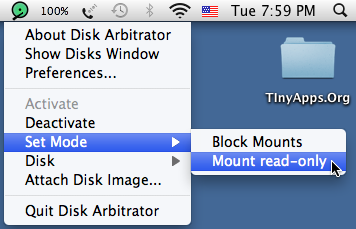It's nice to know about Disk Arbitrator, and many will prefer a GUI interface, but did the original submitter try the fstab way to prevent a disk automatically mounting? This works for me (Mac OS X 10.6.4), both at boot time and when I plug in a USB disk while I am logged in. Thank you for downloading Disk Arbitrator pour Mac from our software portal. The version of Disk Arbitrator pour Mac you are about to download is 0.8. The download was scanned for viruses by our system. We also recommend you check the files before installation. The download is provided as is, with no modifications or changes made on our side. . The steps of a lawsuit can be broken down into three main stages: o The Initial Steps - including filing a complaint, serving the defendant, the defendant responding to the complaint, discovery (naming witnesses, deposition, document production etc), or a motion for summary judgement is filed. Please could you tell me how correctly calculate Arbitrator system requirements? Is it possible to calculate the sizing of the Arbitrator (RAM, CPU, Disk resources) based on the members hosts resources which already in use in existing Percona cluster? The goal to have enough resources for Arbitrator and no negative impact on the cluster perfomance at maximum load in future. For example (if. About Disk Arbitration. The Disk Arbitration framework notifies your app when disks appear and disappear and lets your app influence that process. With Disk Arbitration, your app can: Detect when new disks appear. Prevent mounting. Mount a volume with different flags or on a different mount point. Unmount a volume. Watch for changes in volume names.
In Mac OS X, diskarbitrationd is the process that handles mounting disks when they are inserted into the computer (eg – firewire, USB, etc). Diskarbitrationd runs in the background, is always on by default and is started by launchd. New disks inserted into the computer are automatically mounted, which you might not want to happen (for example, if you are forensically imaging a system, investigating malware on a device, attempting to fix corruption, simply trying to keep users that don’t know how to manually mount a disk from accessing one, etc).There are number of ways to stop diskarbitrationd. One of the easiest (and least intrusive since it doesn’t require a restart) is using launchctl. To disable disk arbitration, first run the following command to obtain a list of currently running launchd-initiated processes:launchctl listThat’s going to output a few too many so let’s constrain our search to those that include the string diskarbitrationd:
Disk Arbitrator Windows
launchctl list | grep diskarbitrationdYou’ll now see a PID and the name of the process. Notice it has an alphanumeric string in front of it, appearing similar to 0x10abe0.diskarbitrationd. Next, go ahead and stop it, again using launchctl but this time with the stop option:
launchctl stop 0x10abe0.diskarbitrationdOnce stopped, let’s verify that diskarbitration is no longer running:

ps aux
Disk Arbitrator Mac Os
Once you have completed your tasks and want to re-enable disk arbitration, you can restart it using the start option in launchctl:launchctl start 0x10abe0.diskarbitrationdFinally, this process is not persistent across reboots. If you will be rebooting the system you are mounting the disk onto you might want to unload diskarbitrationd and then move the plist from /System/Library/LaunchDaemons/com.apple.diskarbitrationd.plist. For example, to move it to the desktop, use the following command:
mv /System/Library/LaunchDaemons/com.apple.diskarbitrationd.plist ~/Desktop/com.apple.diskarbitrationd.plist
